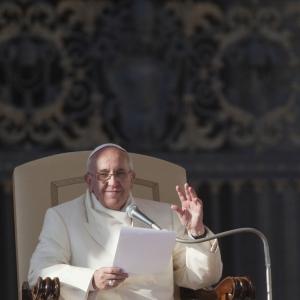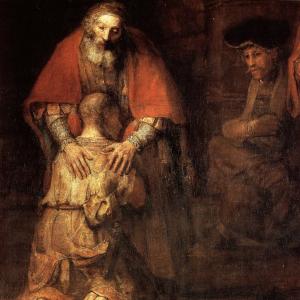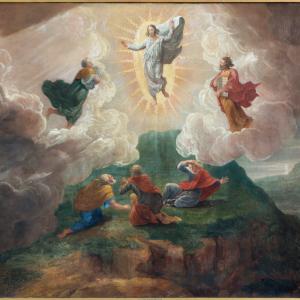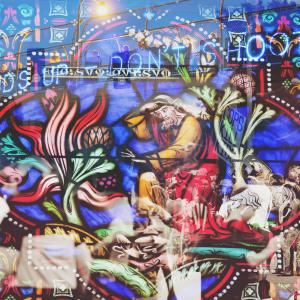Reverend Keith Anderson serves as pastor at Upper Dublin Lutheran Church near Philadelphia and is co-author with Elizabeth Drescher of Click2Save: The Digital Ministry Bible (Morehouse, 2012).
Posts By This Author
Wolves in Shepherds' Clothing

Image via Dalibor Sevaljevic/Shutterstock.com
On the cross, he is derided by a criminal and mocked by soldiers. He is beaten, bruised, and dying, and yet still has the presence and the grace to say, "Father, forgive them; for they do not know what they are doing." Perhaps Jesus prays that same prayer over us now as he looks down on our hurting, divided, and anxious world.
Uber and Amos: Economic Justice in the Gig Economy

Image via Shou/Shutterstock.com
Amos saw that economic exploitation takes many forms. Sometimes it might even appear as a shiny new app. For Amos, “socioeconomic reorganization without compassion is not acceptable.” Nearly 3,000 years later in today’s gig economy, the same must be true for us.
How Parents Can Be Like Prophets

Image via Uber Images / Shutterstock.com
Was it Jesus who said, “No greater love has anyone than this, to sit through a school board meeting?”
No, actually that was me. I whispered it to my wife as we sat together for several hours at a recent meeting of our local school board. On the agenda that evening was the adoption of a proposed district-wide gender expansive policy to protect transgendered and gender non-conforming students and bring the district in line with the U.S. Department of Education's directive on Title IX and recent legal precedent.
Why We Need the 'Ministry of Reconciliation' Now More Than Ever
There is a story in our family lore that during a contentious presidential campaign a few decades ago my father refused to drive his mother, my grandmother, to the polling station on election day. She was voting for the opposing candidate and he didn’t want her to cancel out his vote. Though contentious at the time, it is a story that still evokes laughter in our family each time it is retold. And don’t worry — grandma eventually got a friend to drive her to the polls.
Pope Francis on Climate Change: Hearing the Cries of Earth and the Poor

Pope Francis greets the pilgrims during his weekly general audience in St Peter's square at the Vatican on December 11, 2013. Photo via giulio napolitano / Shutterstock.com
Last week Pope Francis issued a blockbuster papal encyclical on the environment called “Praised Be.” It is the Pope’s clarion call to address what he describes as an urgent global environmental crisis. Sweeping in scope, it addresses the many dimensions of environmental degradation and the devastating toll it is taking on people, communities, and nations.
He writes, “It is my hope that this Encyclical Letter…can help us to acknowledge the appeal, immensity, and urgency of the challenge we face.” The Pope pulls no punches and is clear and direct, “The earth, our home, is beginning to look more and more like an immense pile of filth.”
Be Afraid. Be Very Afraid. Oh … and Jesus.
Lately I’ve noticed that the “prayers of the people” at my church are beginning to sound like the sixth seal of the Book of Revelation has been broken and the world is about to implode. While I'm glad we pray about important topics in global affairs like Iran's nuclear program or ISIS, it’s easy to feel tense when folks start rattling off one shocking headline after another. I want to be engaged with the things in our world that need change, but I wonder to myself: Where is hope? Where is the good news? It seems like our message has become: “Be afraid. Be very afraid. Oh … and Jesus.”
In “A Newsfeed of Fear,” (Sojourners, May 2015) Gareth Higgins writes: “Our culture has been hoodwinked by the idea that we’re living in the center of a crisis when actually we’re in the midst of an evolution of hope.”
Scandal and sensation are nothing new to the media, but I think Higgins is on to something: with our newsfeeds delivering a daily stream of scandals, shootings, and outrage to our pockets and wrists it seems easier to believe that our world is falling apart. And when these stories lack context, follow-up, or conversation, one crisis can just seem to flow into another.
In a recent conversation with my father-in-law, Elly Alboim, a veteran journalist and professor of journalism, he admitted that news media can paint “an unrelentingly bleak view of the world.” He noted how news outlets often focus on inexplicable tragedies (plane crashes), threats to health and wellness (U.S. fear over Ebola), and the bizarre (take your pick), all of which reinforce our sense that we’re living on the edge of global apocalypse.
Alboim also explained that people typically process the news in terms of threats. Each morning they perform their own kind of threat assessment, beginning with the most immediate threat — the weather — moving on to morning traffic and eventually, all the way to news of global terrorism.
Forsaking the 'Whiteness' of the Transfiguration
Sparked by the shooting death of Mike Brown in Ferguson, the subsequent deaths at the hands of law enforcement of Eric Garner in New York and 12 year-old Tamir Rice in Cleveland, protests under the banners of #ferguson, #icantbreathe, and #blacklivesmatter have spread around the country and a passionate conversation about the role of race in America has been rejoined. These protests, along with coverage by news media and the voices of social commentators and faith leaders — as well as the well-timed critical success of the movie Selma — have moved matters of race to the fore of our cultural consciousness and conversation in a way rarely seen since the Civil Rights movement of the 1950’s and 1960’s.
And yet, despite this heightened awareness about the experience of people of color, there remains a great distance and disconnect between white and minority communities regarding not only the actions of law enforcement, but also the varied manifestations of systemic and institutional racism. Indeed, the very real troubles experienced by communities of color are largely invisible to many whites. In Ferguson itself, many whites prior to the death of Mike Brown reported being unaware of the tension between African-American community and law enforcement. Nationwide, whites and African-Americans had very different perspectives. Whereas 80 percent of African Americans said Mike Brown’s shooting raised issues about race, only 37 percent of whites said the same.
In a time when renewed engagement is desperately needed, it is difficult to have dialogue when a vast majority of whites cannot empathize with the experience of communities of color, or, in some cases, acknowledge that there is a problem at all.
God Hears the Cries of #Ferguson: A Burning Bush and a World on Fire
"Then the LORD said, 'I have observed the misery of my people…I have heard their cry…Indeed, I know their sufferings…’ - Exodus 3:7
For the last few weeks, the eyes of America have been riveted on the town of Ferguson, Missouri, a formerly little-known suburb of St. Louis. It was there on Aug. 9 that an unarmed African-American teenager named Mike Brown was shot six times by police, sparking ongoing protests and demonstrations by grief-stricken and outraged citizens. Clashes between demonstrators and heavily armed local police, highway patrol, and the Missouri National Guard have been the subject of extensive coverage and all manner of commentary across broadcast and social media.
These demonstrations in Ferguson represent something more than just lament for the tragic death of Mike Brown. They are an outcry at the demonization of black men, racial profiling, institutional racism, intergenerational poverty, the militarization of law enforcement, and a culture of incarceration in America. Over the last three weeks, Ferguson has become a flash point for urgent issues facing minority communities, issues which have been largely unnoticed or ignored by the majority white culture. The #Ferguson hashtag no longer just refers to the events happening in Ferguson but has come to represent a national conversation about the toll that institutional racism and its many diabolical expressions have taken on our fellow Americans.
In the days following Mike Brown’s death, columnist Leonard Pitts, Jr. described the protests as “an act of outcry, a scream of inchoate rage. That’s what happened this week in Ferguson, Mo. The people screamed.” These screams echo of the cries that God heard from the Hebrews enslaved in ancient Egypt.
On Scripture: #firstcenturyproblems (Matthew 1:18-25)
With just a few days to go before Christmas, many Americans will be rushing around completing their Christmas preparations: doing their last minute shopping, finalizing travel plans, figuring out how to deal with awkward family dynamics. In many cases, they will be faced with what is popularly known as #firstworldproblems — problems of inconvenience of a privileged and affluent people: delayed flights, out-of-stock gift items, spotty cell phone coverage.
At the same time, many people, hidden amidst the consumer celebration that Christmas has become, will be struggling just to find their next meal, shelter, community, and hope.
Striking census bureau statistics released earlier this year paint a picture of an expanding American underclass, with 15% of Americans living at or below the poverty-line, 23% of children (the highest percentage of poor by age) living in poverty, and the evaporation of the American middle class.
On the one hand, at this time of year, our society is more aware of the poor. Holiday food collections, toy and clothing drives abound, as does the ubiquitous ringing of Salvation Army bells. And yet, in many ways the plight of the poor is more hidden by the bright lights and rush of the season.



